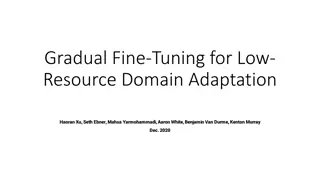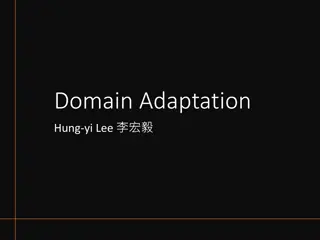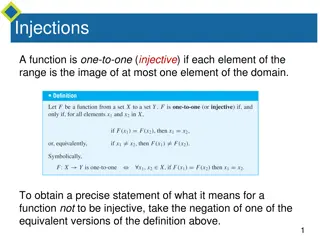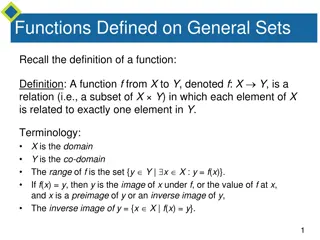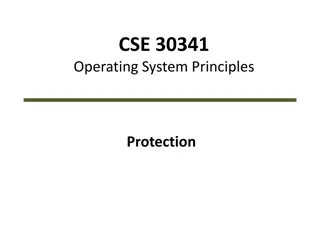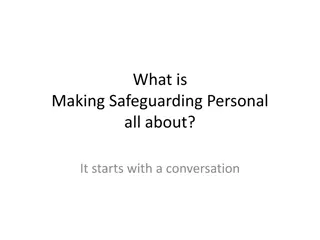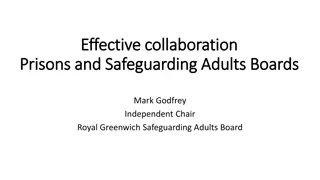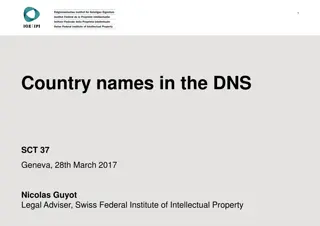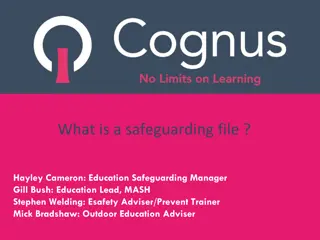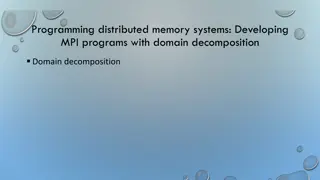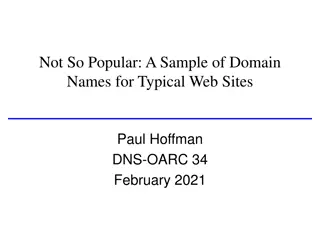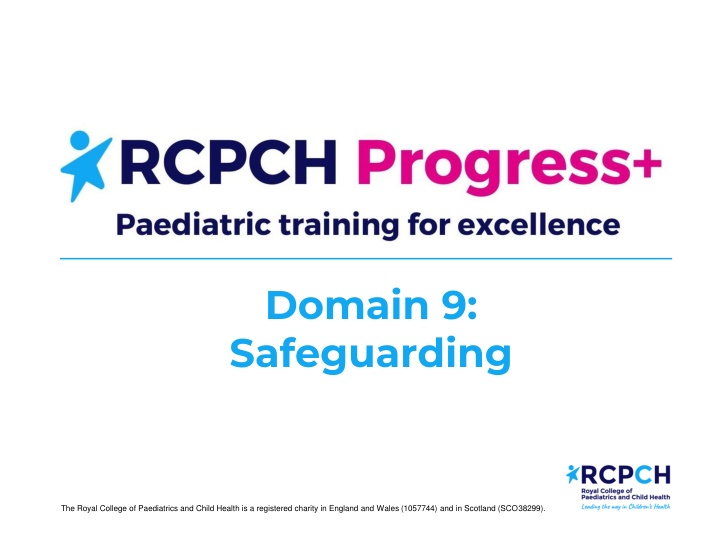
Safeguarding Core Capabilities in Paediatric Healthcare Practice
Explore the core capabilities in safeguarding vulnerable groups in the field of paediatrics. Understand the importance of recognizing and acting upon safeguarding concerns, documenting accurately, and providing early support and intervention for children and young people in need. Enhance your knowledge of forensic assessment, parental responsibility, and the impact of adverse childhood experiences.
Download Presentation

Please find below an Image/Link to download the presentation.
The content on the website is provided AS IS for your information and personal use only. It may not be sold, licensed, or shared on other websites without obtaining consent from the author. If you encounter any issues during the download, it is possible that the publisher has removed the file from their server.
You are allowed to download the files provided on this website for personal or commercial use, subject to the condition that they are used lawfully. All files are the property of their respective owners.
The content on the website is provided AS IS for your information and personal use only. It may not be sold, licensed, or shared on other websites without obtaining consent from the author.
E N D
Presentation Transcript
Domain 9: Safeguarding The Royal College of Paediatrics and Child Health is a registered charity in England and Wales (1057744) and in Scotland (SCO38299).
Curriculum overview Structural changes Reduction in the overall indicative length of training from eight to seven years. Change to two training levels 1. Core Level Paediatrics (Year 1-4) 2. Specialty Level Paediatrics (year 5-7) Changes with a view to improving flexibility: Embedding capability rather than time-based training Removal of the requirement to do six-month blocks (e.g., neonates, community child health). Mapping of similarities between sub-specialties so trainees can change pathway and count capabilities already achieved. Promotion of OOP (out of programme) opportunities.
Core Capabilities in Safeguarding Vulnerable Groups This domain requires the trainee to consider safeguarding as an essential element of all aspects of paediatric healthcare practice. The safety of all babies, children and young people is paramount. Core trainees must complete accurate documentation and raise concerns to senior staff in a professional manner. By the end of core training, they will role model excellent safeguarding practice to junior staff and consider environmental aspects that impact safeguarding (eg addictions and social deprivation).
Core Level Curriculum Learning Outcome 9 This domain requires the trainee to consider safeguarding as an essential element of all aspects of paediatric healthcare practice. The safety of all babies, children and young people is paramount. Core trainees must complete accurate documentation and raise concerns to senior staff in a professional manner. By the end of core training, they will role model excellent safeguarding practice to junior staff and consider environmental aspects that impact safeguarding (eg addictions and social deprivation).
Core Level Curriculum Learning Outcome 9 Core Learning outcome Key capabilities Recognises and acts upon safeguarding concerns, taking into account risk factors. Understands the professional responsibility of safeguarding babies, children and young people; accurately documents and raises concerns in a proficient manner to appropriate staff and agencies. Conducts an assessment for possible maltreatment, including sexual abuse which incorporates attention to the broader family function and the baby s, child s or young person s developmental, physical and mental health status. Applies knowledge of the indications for a skeletal survey and relevant blood tests in safeguarding. Documents clearly and accurately, using body charts, to record the examination results of a baby, child or young person within a safeguarding context. With supervision, provides oral or written reports for: strategy meetings and case conferences, police or social services. Recognises the long-term impact of physical and mental adverse childhood experiences, including maltreatment and when a baby, child or young person and families are vulnerable, distressed and in need of early support and intervention. Applies an understanding of consent and parental responsibility in relation to safeguarding procedures of looked after children. Applies knowledge regarding forensic assessment in relation to child abuse and establishes the importance of the chain of evidence. Follows the local system of referral for assessment and arranges follow-up for babies, children or young people who may have been sexually abused.
Specialty Capabilities in Safeguarding Vulnerable Groups Safeguarding of babies, children and young people is central to all aspects of paediatrics. The trainee now works proficiently and advises others about this area of practice.
Specialty Level Curriculum Learning Outcome 9 Specialty Learning outcome Key capabilities Applies knowledge of the impact of adverse childhood experiences in working with vulnerable babies, children and young people, including those with complex needs, across a variety of clinical settings. Applies knowledge of the role of the paediatrician as it relates to those of other agencies in the management of babies, children and young people in need of protection. Independently leads the process of safeguarding for babies, children and young people, including assessment, investigations and reporting. Following sudden unexpected death in babies and children (SUDIC), applies local procedures, including involvement of a rapid response team when appropriate and recognises the urgency when abuse is suspected. Instigates appropriate medical investigations, initiating and contributing to multi-agency involvement in all forms of abuse. Compiles and writes a range of reports required for safeguarding work, including police statements, medical reports for social services and court reports.
Underpinning knowledge Recognition & diagnosis Roles, The Knowledge of the types of abuse & neglect Safeguarding Responsibilities & Accountability Protection of both individuals & groups
SLEs for safeguarding examples Safeguarding CBD Discussion of a case where there are safeguarding issues Mini-CEX Examination of a child with child protection concerns DOC Review of child protection medical report or court/police report LEADER Coordination of multi-agency meeting about a child where there are safeguarding concerns.
Other ways to document key capabilities Reflections e.g. on a challenge consultation, upsetting case, interactions with children s social care Teaching sessions Organise a discussion group for challenging cases with a safeguarding component Clinics Attend local child protection medicals, FGM clinics, child sexual abuse medicals
Useful training and resources RCPCH Safeguarding courses (including report writing, preparation for court) RCPCH e-learning: Female Genital Mutilation (FGM) - Female Genital Mutilation - e-LfH eLearning for Health Safeguarding Children & Young People Programme - Introduction to Safeguarding Children and Young People - eLfH NSPCC eLearning https://learning.nspcc.org.uk/health-safeguarding- child-protection/ Child Protection in Practice - ALSG (PDF) Recognition, Response and Record - e-LfH Maintaining and Updating Competences - e-LfH


